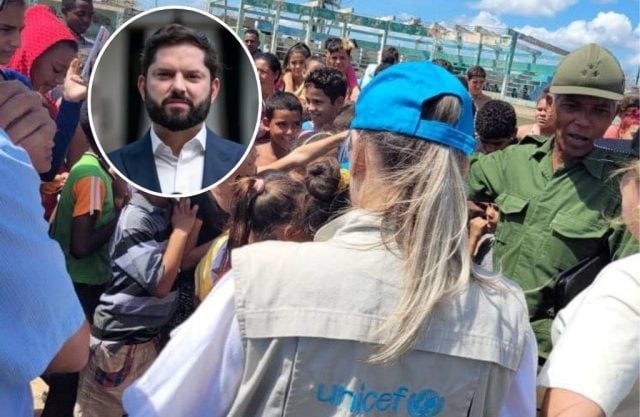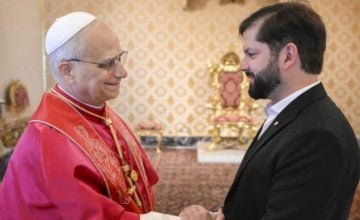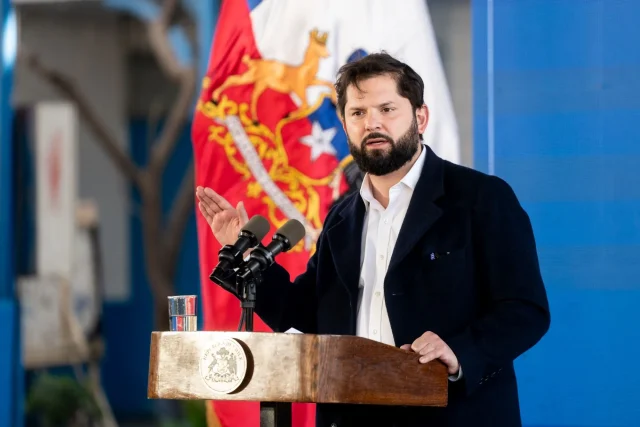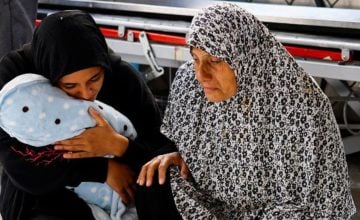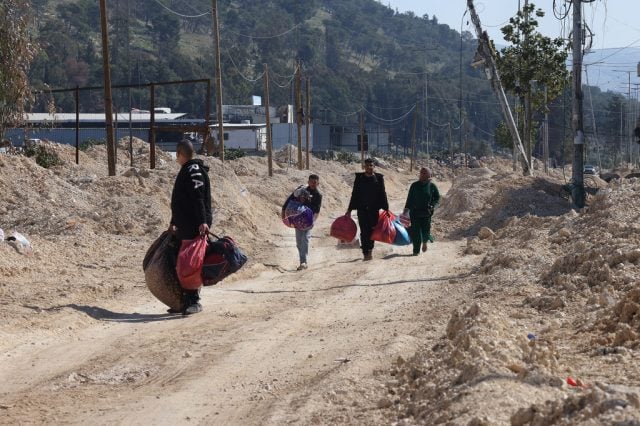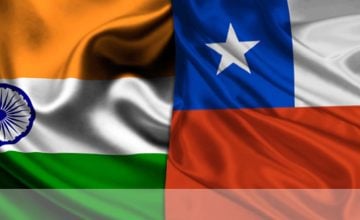During the opening ceremony of the Food and Agriculture Organization’s Hand-in-Hand Investment Forum, Chilean President Gabriel Boric on Tuesday accused Israeli Prime Minister Benjamin Netanyahu of weaponizing hunger as part of the war strategy in the offensive on Gaza.
Speaking at the 2025 World Food Forum, the president voiced strong support for FAO’s multilateral role, highlighted Chile’s progress on food security, and urged deeper international cooperation to fight hunger and malnutrition while transforming global food systems.
He also referenced a declaration by the mediating countries between Israel and Hamas — the United States, Egypt, Qatar and Turkey — on a Gaza peace agreement aimed at bringing an end to a conflict that has raged for two years. The war, which many international observers have described as genocide, has reportedly left about 68,000 people dead — most of them women and children — and more than 170,000 injured, driving an unprecedented humanitarian crisis.
“We welcome, and look with hope to, the peace agreement now beginning to be implemented in Gaza. From Chile, we believe this can put an end to misery and mass killing,” the head of state said.
However, before delegates of FAO’s 194 member countries and representatives of the European Union, he argued that “we must raise our voices so hunger is never again used as a weapon of war,” alleging it has been employed in Gaza by Prime Minister Netanyahu’s government.
At the same time, he called for making the eradication of hunger a universal, non-ideological objective.
“I want to defend from this platform that setting the end of world hunger as a shared goal of humanity is not ideology. It is a basic civilizational standard that we should all uphold,” he said.
In this vein, the president said multilateralism is essential to finding solutions and that “it is imperative to accelerate scientific and technological innovation, bring young people into the process, and attract greater investment — the three pillars of the World Food Forum — to tackle urgent challenges of sustainability, resilience and nutrition that affect us all.”
The Chilean model: Equity in land access and use
In his address, Boric also highlighted advances and his government’s approach to food security and rural development, explaining that Chile’s policy has focused on equity and the fair distribution of essential resources.
“Our work in this area has centered on equity — equitable access to and use of land and water, with an emphasis on rural women and youth — because we want young people, if they choose, to be able to remain in the countryside, without a forced exodus for the new generations who want to build their future in rural life,” he said.
This approach aligns with the Hand-in-Hand Initiative, which Chile joined in May of this year. It is regarded as one of the UN agency’s most successful programs in support of family, smallholder and Indigenous farming, particularly in Latin America and the Caribbean.
673 million people facing hunger worldwide
Closing his remarks, the president addressed the severity of the global situation, emphasizing that 673 million people are going hungry worldwide and calling for collective action and better use of the tools available.
“Given the dire situation of millions — 673 million people around the world going hungry today — we must treat it as an ethical imperative to strengthen the value of global cooperation and seize the technological and innovation opportunities we have now, just as the Hand-in-Hand initiative does in practice,” he stressed, in comments reported by Diario U de Chile.
Before his opening address, President Boric held a private meeting with FAO Director-General QU Dongyu to deepen the joint work between the organization and Chile, reaffirming the country’s commitment to global food security, the fight against hunger, and the importance of multilateralism.
In attendance were Foreign Minister Alberto van Klaveren; Minister Secretary General of the Presidency, Macarena Lobos; Chile’s ambassador to Italy, Ennio Vivaldi; Senate President Manuel José Ossandón; Senator Loreto Carvajal; and Senators Sergio Gahona and Juan Ignacio Latorre.

